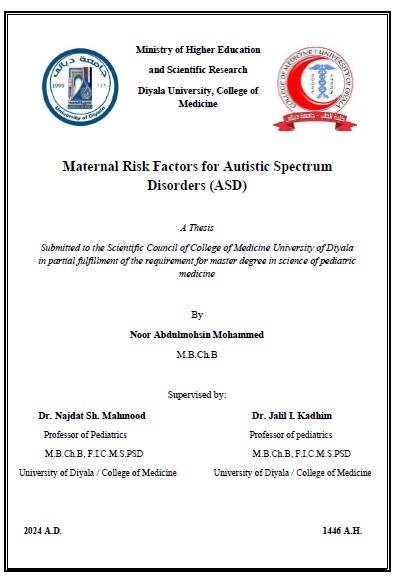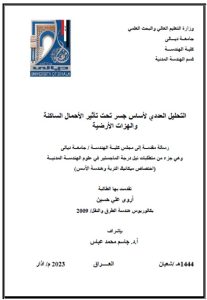Abstract
Introduction: Autistic Spectrum Disorders is a complicated neurological condition, typified by repetitive behaviors, limited interests, and difficulties with social communication. The cause of Autistic Spectrum Disorder is multifactorial, involving genetic, environmental, and maternal factors. Recent studies have suggested maternal factors, such as advanced maternal age, high Body Mass Index, smoking, and depression during pregnancy, as significant risk factors for Autistic Spectrum Disorders.
Aim of the study: This study aims to investigate the maternal risk factors that contribute to Autistic Spectrum Disorders in children in Diyala, Iraq.
Patients and Methods: This case-control study was conducted on 150 children, comprising 75 children diagnosed with Autistic Spectrum Disorded and 75 healthy children as a control group. The study was carried out from August 2023 to May 2024 in Diyala, Iraq. Data collection included comprehensive demographic, social, obstetric, and maternal health histories. Autistic Spectrum Disorders diagnosis was confirmed using the Childhood Autism Rating Scale–2 (CARS–2). A logistic regression analysis was performed to assess the association between maternal risk factors and ASD.
Results: The study revealed several significant maternal risk factors for Autistic Spectrum Disorders. Increased maternal age at pregnancy (mean age 28.1 years in cases vs. 22.9 years in controls, p=0.001), high maternal BMI (mean BMI 26.9 in cases vs. 24.4 in controls, p=0.0001), maternal smoking (6.7% in cases vs. 0% in controls, p=0.023), and maternal depression during pregnancy (22.7% in cases vs. 0% in controls, p=0.0001) were all have a significant association with an increased risk of ASD. The use of stimulating hormones before pregnancy also showed a significant association (21.3% in cases vs. 4% in controls, p=0.001). Parity, particularly having 1-2 pregnancies, was also a significant risk factor (p=0.002).Conclusion: This study identifies increased maternal age, high BMI, smoking, depression, parity specifically having 1-2 pregnancies, and the use of stimulating hormones before pregnancy as significant maternal risk factors for ASD in children





